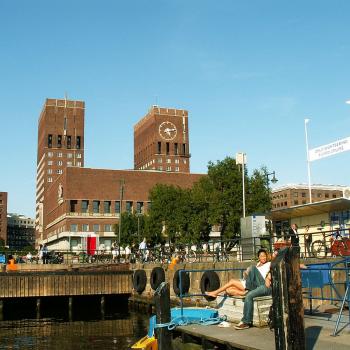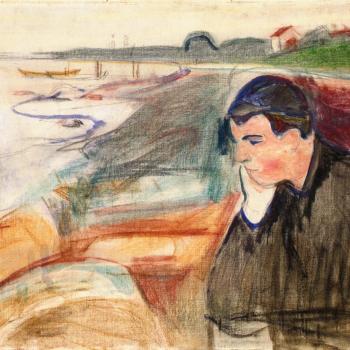The answer, of course, is humility. It’s a word we may hear so often that it becomes banal. It’s something commanded of us, but easily made fangless. It’s something so hard as to seem easy. Pope St. Clement I speaks to humility’s relationship to the pride I discussed above:
We should let God be the One to praise us and not praise ourselves. For God detests those who commend themselves. Let others applaud our good deeds.
St. Augustine sounds harsher: “You cannot attain to charity except through humility.” Thomas Merton puts this idea in terms of judgment and suffering:
We must suffer. Our five senses are dulled by inordinate pleasure. Penance makes them keen, gives them back their natural vitality, and more. Penance clears the eye of conscience and of reason. It helps think clearly, judge sanely. It strengthens the action of our will. (Thoughts in Solitude)
Humility is not just some affected virtue of the impotent (to play on another Mertonian turn of phrase). It is not simply the ability to put up with life, to pretend one is small long enough to let others seem big (this is how one ends up asking oneself why others are not doing enough, why they don’t work harder on themselves). No, humility is to embrace what one is—it is to see oneself as a speck among specks, a creature among creatures, one made to love out of the core of one’s very smallness. This is not a comfort, but a path beyond comfort. It is not joy, but a path beyond joy. It is to be what one is—great in recognition of one’s finitude, rather than comical in one’s pomposity.
I have so much left to learn. I leave you with this:
We want to shine by battling evil. To respond to an action with an identically mirrored reaction, evil for evil, is to lock the human situation of animosity in a hopeless impasse. It is, thus, to frustrate the work of God, whose deepest endeavor is the restoration of man, to a state of harmony in the truth […]
The willingness to surprise our adversary with compassion, with love, with forgiveness—with justice according to the Heart of Christ, in other words—performs a far more efficient and constructive task. It puts evildoers at the risk of being converted, and it dynamizes the whole of society by introducing into it the most divine of principles: self-giving at all costs. After my enemy has slapped both my cheeks, he will have run out of cheeks to slap, and perhaps he will be ashamed. After I have given him both tunic and coat, he will perhaps learn to have pity on my nakedness. If I go the second mile with him, perhaps this will give us both the needed time and shared experience to pass from animosity to friendship. Perhaps all of his aggressiveness toward me comes from a lack of imagination, from a real ignorance concerning what other courses were available to him besides injustice and violence. Perhaps my open hands and silent mouth become the most eloquent of teachers, and I will have won a brother in the Lord […]
“By not resisting evil,” our Lord would say, “you allow it to spend its fury and show its finiteness; you allow it to exhaust itself; you allow God’s life to flow through you and fill the huge void you have, by your seeming passivity, created in your former adversary. By courageously choosing the path of humble and loving nonresistance, you have added one more stone to the construction of God’s Kingdom.” (Fr. Simeon)













